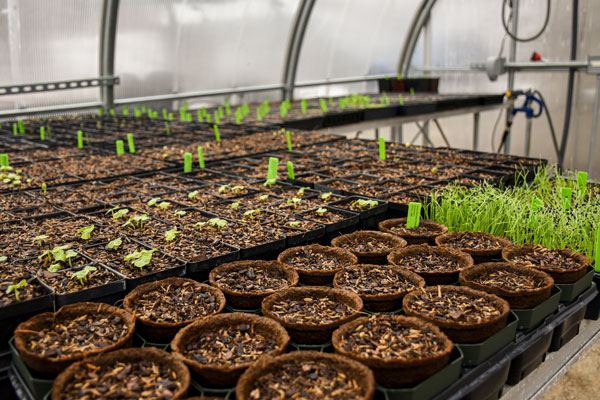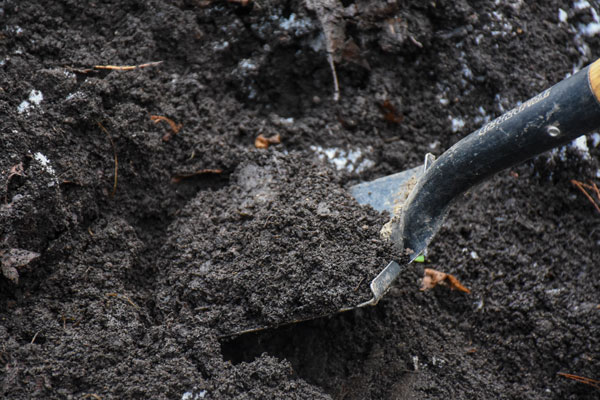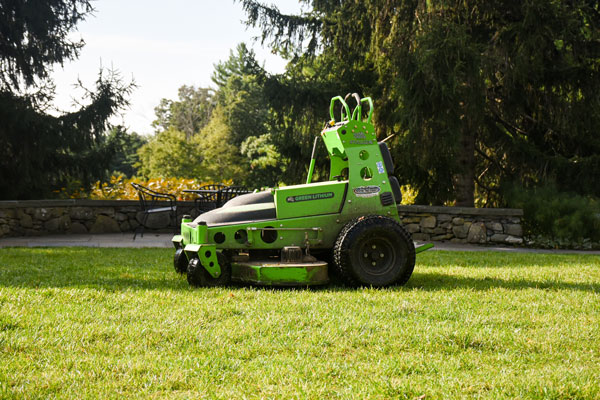By Megan Stouffer, Digital Marketing Coordinator, New England Botanic Garden
March 2024

Spring is nearing, and with it comes thoughts of warmer temperatures, longer days, and of course, gardening! As the new growing season approaches, you may want to consider opting for more sustainable practices in your gardening experience. But creating a more sustainable garden can seem daunting for new and seasoned gardeners alike. With many methods to choose from, it’s hard to know what types of sustainable changes will work best and have the biggest impact. But don’t fret! We’ve gathered some recommendations that offer you a great way to get started.
Use – and reuse – what you have
Having the newest, most eco-friendly gardening products is only helpful to the environment if you truly need them. In fact, increased consumption defeats the purpose of trying to be sustainable. Taking a second look at items you may think of as trash or waste can create great opportunities for us to reuse and recycle. That old egg carton you’re about to throw away? It can be used as a makeshift planting tray for seed starting. And the twigs and leaves you collected last fall can be used to fill the bottom of raised beds while also providing some much-needed organic material for your soil and plants. If you have plastic items, like planting trays or pots, that are in good condition, keep using them! They’re better off with you than sitting in a landfill.
 Put your compost pile to use
Put your compost pile to use
Composting offers various benefits including improving soil health, recycling important nutrients, and decreasing greenhouse gas emissions by diverting waste from landfills. Once your compost is ready, begin adding it to your garden. Different plants and soil conditions will require different amounts of compost, giving you a great chance to get to know your plants and soil better.
If you haven’t started a compost pile at home, there’s no better time to begin. Garden CEO Grace Elton offers some tips and tricks for at-home composting in the Garden’s monthly column with the Worcester Telegram & Gazette.
Plant natives and perennials
Native plants support native insects and wildlife. It’s win-win — your garden looks amazing and your local ecosystem benefits. Native plants are not only more likely to establish more quickly in your garden, but because they naturally occur in your local environment, native plants are more likely to be hardy and healthy, needing less maintenance from you. Be sure to save your seeds at the end of each season as well! This not only helps prepare you for the next year but can help save some money as well.
Go peat free
A great way to reduce your carbon footprint is to use peat free and organic potting soils. Peat forms naturally in bogs and peatlands. Because it is made of high carbon accumulations of partially decayed organic matter, unearthing it releases carbon into the atmosphere.
Healthy soils hold onto carbon by sequestering it through communities of microorganisms. To build a strong and healthy microbiome you should be testing your soil regularly and only applying necessary organic fertilizers. Organic mulches, leaf litter, and organic waste are all viable options alongside peat free potting soil. The State offers guidance on plant nutrient management that can help you decide what steps to take.
Implement a water conservation system
While many New Englanders saw a lot of rain this past summer, the region experienced historic drought in 2022. As temperature and precipitation patterns grow more erratic with climate change, you may consider implementing a water conservation system for your home garden. Collecting rainwater in a rain barrel, for example, is one of many steps you can take to improve and build a drought resilient garden. Rain barrels, rain gardens, and olla watering systems are just a few options to try out.
Make the switch to electric
When the need to clean up your garden or yard is necessary, many reach for items like string trimmers, leaf blowers, and mowers. Switching from gas-powered to electric-powered equipment offers several advantages to the home gardener. Not only does this swap help reduce carbon emissions, but it also reduces negative health impacts associated with the regular use of gas-powered equipment. Incentives offered by Mass Save and municipal programs like Boylston’s Next Zero program provide valuable resources for those looking to make electric transitions. If making the switch is not a viable option for you right now, decreasing the use of mowers and other lawn equipment still contributes to the reduction of carbon and other pollutants. If you’re interested in learning more about practices such as “No Mow May,” check out Director of Horticulture Mark Richardson’s article on the topic.
The choices you make in your landscape have meaningful effects on the world around you, and every small step counts. The Garden’s own journey to electric equipment began in 2019 and continues to this day as we pursue climate neutrality across our organization. As horticulturists, educators, and community leaders, we hope to offer valuable resources to those looking to make changes in their communities and backyards.
About the Author
Megan Stouffer is the Digital Marketing Coordinator at New England Botanic Garden at Tower Hill located in Boylston, MA. She has been with the organization since 2021 and primarily works on the Garden’s social media and email marketing content. Megan earned her BS in Public Relations at Slippery Rock University and is finishing her MS in Environmental Studies and Sustainability at Unity Environmental University. Her professional interests include climate change communication, environmental interpretation, and inclusive storytelling.
